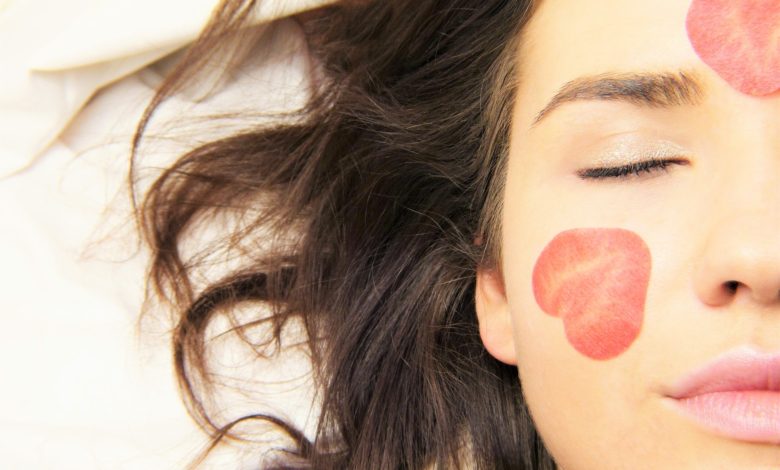Is It Healthy to Use Alcohol in Skin Care

While alcohol can help the skin absorb the applied products faster, in some cases it can cause redness and irritation. When alcohol is used in skin care products, it is known by several different names and this component can be used in a wide variety of products. Some alcohol used in moisturizers has the potential to dry the skin and make it more prone to irritation, while others can actually help moisturize the skin. This article contains information about whether it is healthy to use alcohol in skin care.
Purpose of Alcohol in Skin Care Products
It is an ingredient heavily used in a variety of skin care products, including alcohol, makeup, lotions, fragrances, shaving products, oral care, skin and hair products. Defined by the US Food and Drug Administration (FDA), alcohol is a large and diverse family of chemicals with different names that have various effects on the skin. Lauren Fine, a dermatologist certified in Chicago Cosmetic Surgery and Dermatology, stated that there are a number of reasons for adding alcohol. These reasons are that the product it is added to feels more elegant and lighter and allows faster absorption. In addition, alcohol is a possible preservative, but not the main preservative as it is other ingredients that fill this role.
Alcohol Names in Skin Care Ingredients List
Some ways to view the alcohol listed on skincare ingredient labels include:
• Ethyl Alcohol: This is also known as ethanol or cereal alcohol according to the FDA. Ethyl alcohol is denatured, which allows it to be used in cosmetics.
• Denatured Alcohol (Alcohol Denat): To avoid paying alcohol-related taxes on cosmetics, companies use denatured alcohol, an ingredient that makes it too bitter to drink. You will find denatured alcohol in makeup, lotions, fragrances, and skin and hair care products. It has other names as well, including methyl alcohol and SD alcohol (for example, 3-A, 30, 39-B, 39-C, 40-B and 40-C).
Isopropyl Alcohol: Probably this more commonly used household name is rubbing alcohol. It is used in a number of products including nails, hair and skin care. And it benefits in a variety of roles such as an astringent, an antifoam agent, and a solvent.
• Methyl Alcohol or Methanol: Found in bath products and considered denatured alcohol.
• Benzyl Alcohol: Benzyl alcohol, an alcohol found naturally in fruits and teas, is found in soaps, cosmetics, cleansers and hair products.
• Cetyl, Stearyl, Cetearyl or Lanolin Alcohol: These are fatty alcohols and according to the FDA, they are very different from traditional alcohols used in skin care. It is possible to see them in conditioners, foundation, eye makeup, and skin moisturizers and cleansers. These help moisturize the skin; When used in formulations, they also prevent the separation of oil and liquid.
Is Alcohol Useful or Harmful in Skin Care?
Alcohol use in skin care has its pros and cons. Gretchen Frieling, a certified dermatopathologist based in Wellesley, Massachusetts, notes that alcohol can penetrate oil build-up and dissolve dirt and grease on the face. However, Dr. Frieling emphasizes that skin type and target should be considered. For example, if a person has excessively oily skin, an alcohol-based toner can help reduce pore-clogged sebum. But if they have dry skin or sensitive skin (eczema or allergies), the same alcohol-based toner can dry out the skin. Per research, the skin may be more likely to absorb potentially toxic or harmful contaminants in a product, as alcohol increases the penetration of other ingredients in some individuals.
Despite the controversy, the presence of alcohol is usually not a product to be afraid of, as long as a product that uses small quantities is purchased. Alcohol is found in many skin products, and most people use it without problems. For normal skin types, alcohol is unlikely to cause a skin problem. However, if the person’s skin is sensitive for any reason, the ingredients inside the product should be checked on the label. Alcohol has an irritating potential if a person’s skin barrier is irritated or compromised by a rash. When applied, the applied area burns.
The Type of Alcohol Should Be Checked in the Ingredient List of the Product
Just like a food label, you can understand how much alcohol is in a product by examining where it came from on the ingredient list. Although the alcohol on the labels states that it is in reasonable concentrations, the use of high products may cause bad results. If alcohol is one of the best ingredients, it probably dries out, and with continued use this can break the skin’s barrier. An impaired barrier allows moisture to escape from the skin and allows potential irritants to enter, resulting in redness and inflamed skin.
A reasonable place for alcohol to appear in the ingredient list is lower. It is recommended not to use products containing ethanol, methanol, ethyl alcohol, denatured alcohol, isopropyl alcohol, SD alcohol and benzyl alcohol. Pay attention to products with high ingredient levels, as they may pose a problem especially for dry skin.
Choosing Non-Alcoholic Skin Care Products
If a product is labeled alcohol-free, it does not contain ethyl alcohol as per the FDA. You should still have a look at the ingredient list, but there may be confusion about this. Because your product may contain fatty alcohols such as cetyl, stearyl, cetearyl or lanolin alcohol. But it should be known that these are a completely different category.
Useful Types of Alcohol in Skin Care
Another category of alcohol is fatty alcohols. These include cetyl, stearyl and cetearyl alcohol derived from oils. Fatty alcohols are often found in lotions, moisturizers, thickeners and emulsifiers. It is non-irritating and can be beneficial. Products with these ingredients work best for dehydrated skin because of their ability to lock moisture into the skin and create a protective barrier that water cannot penetrate. Then there is the lanolin alcohol obtained from wool. According to a study published in the Journal of Dermatology in October 2019, when specially formulated, it can actually be gentle even for injured skin, although it is the source of contact dermatitis. The research investigated the effects of applying a specially formulated wound healing ointment containing lanolin alcohol; None of the approximately 500 people analyzed developed a contact allergy to the product.
Other Substances That May Irritate the Skin
If he notices that his skin is sensitive to alcohol-containing products, it should be borne in mind that alcohol is not the only source of irritation. Because the product may contain some preservatives such as parabens and fragrances. To know whether there is paraben in the product used, paraben ending substances such as methylparaben and butylparaben should be screened. Using hair dyes and wet wipes on your face can also trigger irritation, a study published in the International Journal of Environmental Research and Public Health in June 2018 demonstrates this. It can be difficult to know exactly what the person is responding to and therefore may require help from a dermatologist. By making a patch test on which of the components common to the products used by the dermatologist, the component that is harmful to the person can be detected.
Things to Know About Alcohol in Skin Care Products
Alcohol can be a useful addition to help the ingredients penetrate the skin, protect the product and feel light when applied. Smaller amounts are unlikely to be harmful, but particular care should be taken if the person has sensitive, dry or eczema-prone skin. Most importantly, the label of the product should be read and the dermatologist should be consulted if there are concerns that the alcohol in it is causing skin problems.





